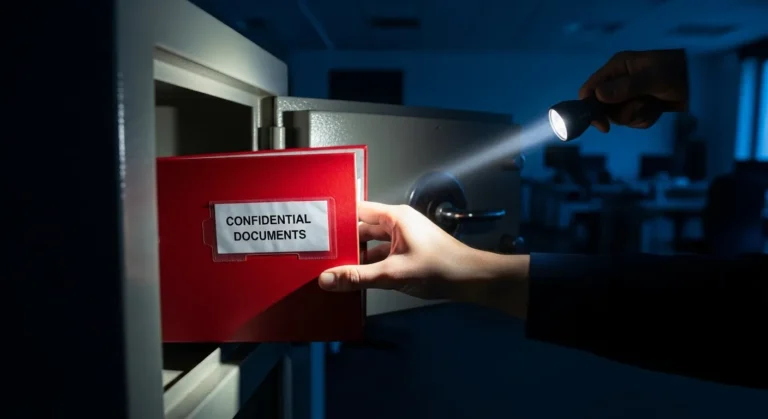
Step 7: Tame the Paper Tiger and Digitize What You Can
Paper clutter can feel endless, but with a system, it can be managed. The goal is to reduce the volume of paper you store while ensuring you have easy access to what is truly important. Your first step is to sort all your paper into three broad categories: Action, Archive, and Recycle.
Action: This is paper that requires you to do something—bills to pay, invitations to RSVP to, forms to fill out. Keep this in a single, visible tray on your desk. Handle it at least once a week.
Archive: These are important documents you need to keep for legal, tax, or personal reasons. This is where most of the clutter lives.
Recycle: This will be the biggest pile. Junk mail, old magazines, expired coupons, and receipts for items you no longer own can all be shredded and recycled immediately.
For your Archive files, you need to know what to keep. Some documents, which we can call **evergreen paperwork**, must be kept in their original hard-copy form, preferably in a fire-proof, waterproof safe or a safe deposit box. These include:
- Birth certificates, marriage certificates, death certificates
- Social Security cards
- Passports and other forms of ID
- Wills, trusts, and power of attorney documents
- Property deeds and vehicle titles
Other documents can often be scanned and stored digitally, allowing you to shred the originals. This includes things like old utility bills, bank statements (check your bank’s retention policies), and receipts for major purchases for warranty purposes. Create a simple folder system on your computer or a cloud service to store these scans.
Finally, create a “Grab-and-Go” binder. This is a single, portable file or binder that contains copies of your most critical documents. In an emergency, you can grab this one item and have everything you need. A good starting point for what to include can be found on the emergency documents checklist at Ready.gov. Your binder should include copies of IDs, insurance policies, a list of medications and doctors, and important contact information.

















